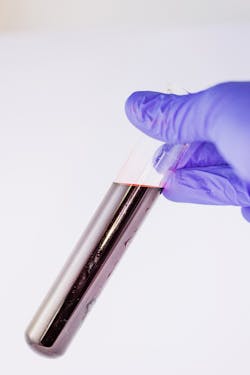MGH study finds no relationship between blood type and severity of COVID-19
Researchers from Massachusetts General Hospital (MGH) have reported that blood type is not associated with a severe worsening of symptoms in people who have tested positive for COVID-19, dispelling previous reports that suggested a correlation between certain blood type and COVID-19. A study published in Annals of Hematology did find, however, that symptomatic individuals with blood types B and AB who were Rh+ were more likely to test positive for COVID-19, while those with blood type O were less likely to test positive.
“We showed through a multi-institutional study that there is no reason to believe being a certain ABO blood type will lead to increased disease severity, which we defined as requiring intubation or leading to death,” said Anahita Dua, MD, MS, MBA, investigator in the Division of Vascular and Endovascular Surgery at MGH and senior author of the study. “This evidence should help put to rest previous reports of a possible association between blood type A and a higher risk for COVID-19 infection and mortality.”
MGH launched its own investigation by drawing on the massive database of the Mass General Brigham (formerly Partners HealthCare) system’s Research Patient Data Registry (RPDR). A study population of 1,289 symptomatic adult patients who tested positive for COVID-19, and had their blood group documented, was culled from more than 7,600 symptomatic patients across five Boston-area hospitals, including MGH and Brigham & Women’s Hospital, treated from March 6th to April 16th of this year. The statistical analysis determined the independent effect of blood type on intubation and/or death of these infected patients.
The large retrospective review showed no significant connection between blood type and worsening of the disease, or between blood type and the need for hospitalization, positioning requirements for patients during intubation, or any inflammatory markers.
An intriguing finding from the MGH researchers was that there appeared to be a greater chance of people with blood types B and AB who were Rh+ testing positive for the virus. Even stronger evidence was assembled by the team that symptomatic people with blood type O were less likely to test positive. For now, though, the researchers are confident that their principle finding – that ABO blood typing should not be considered prognostic in patients who acquire COVID-19 – will help to debunk the kinds of clinically unfounded rumors and misinformation that can readily gain traction in the midst of a pandemic, and in some cases become part of accepted medical practice.

